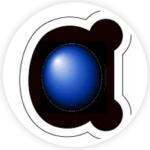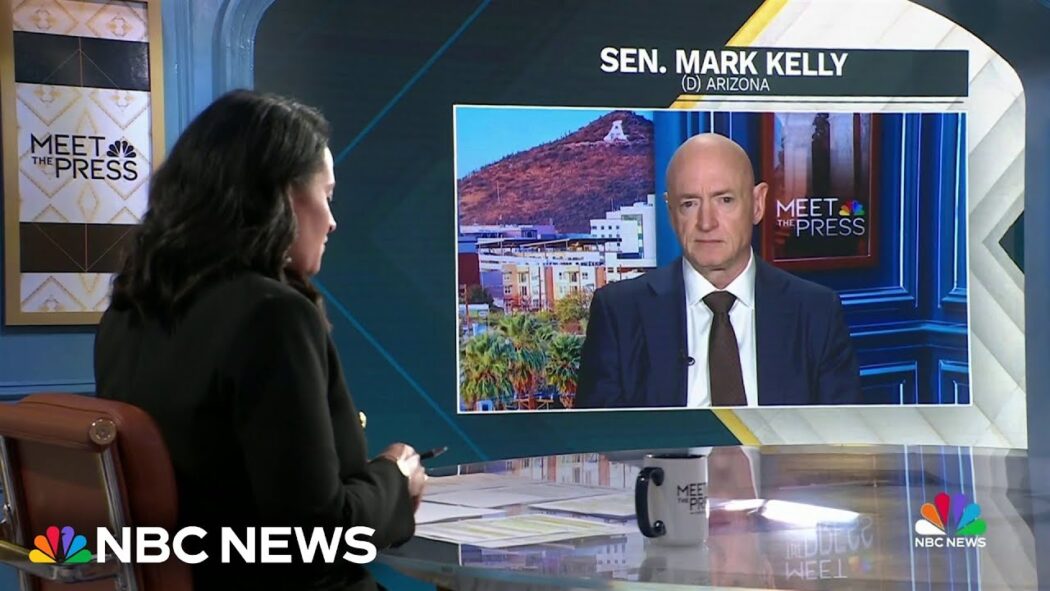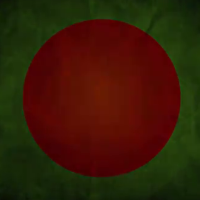Try Adsterra Earnings, it’s 100% Authentic to make money more and more.

 ISHRAT FERDOUSI
ISHRAT FERDOUSI
Shahzaman Mozumdar was born at Dinajpur in 1956. At curfew break on March 27, 1971, he saw the gruesome handiwork of the Pakistani army in Dhaka and decided to join the fight to liberate the land. He was later conferred with the Bir Protik for gallantry. An IT professional, he is married and lives and works in Dhaka.
This is the story of the 15-year-old valiant soldier.
* * *
Hoping to take along a companion, I went to see Manik who lived at the Circuit House in Paribagh. Manik was unique in that he had a very expressive way of communicating — his speech was accompanied by animated gesticulations. When I told him about my plans and asked him to join me, Manik went manic on me. His eyes widened and his voice deserted him as his face froze, turned crimson then contorted, as he took in my revelation. Then he extended his arms as if pushing away a nightmare and started shaking his head before finally blurting, “You have lost your mind!” in a harsh but quivering voice. Then, hands moving like a puppet with a madman at the strings, he told me of the ferocity and barbarity of the Pakistanis. “It’s quite impossible to fight them!” he said. As a last bit of advice before he dismissed me, he told me to go home and stop being a fool.
* * *
Our training camp was in Teliapara Bashbagan, Sylhet and our instructors were East Bengal Regiment personnel as well as Indian border guards, the BSF. We fired .303 rifles and went through explosives and demolition training; learned to make punji stakes for fortifying defences, lay and remove anti-tank and anti-personal mines, improvise Bangalore torpedoes using bamboo, and assemble and disassemble SMGs, LMGs, and MMGs; and carried out additional mock ambushes and raids — all compressed into 4-5 days. On 15th April, without any formal ceremony we became Mukti Bahini.
At the armoury I filled both my ammo pouches with .303 cartridges and also took six grenades—four high explosive type and two smoke grenades. I had never used smoke grenades before and they looked so cute, just like 7-up cans, that I couldn’t help taking them. The same night, we went out on patrol. The combined load of ammo, at least 150 rounds, and the grenades, was so heavy that after walking only a few miles, I was regretting bringing along all that. When I returned from the patrol, I was half dead. Thereafter, as long as my weapon was the .303, I carried only 75 rounds and one high explosive grenade.
* * *
The ambush was laid. We didn’t have to wait long. It was a Pakistani patrol of about a section (10 men). My heartbeat suddenly increased with fear and excitement which I desperately tried to control. They were about 200 metres away and only barely visible, and they were coming straight at us. Selim bhai hissed, “No one shall fire before I do!” Since he wasn’t exactly shouting, I’m not sure if everyone heard him.
When the Pakistanis were about 150 metres away we could clearly see their silhouettes. I aimed my rifle though the darkness prevented precise aiming. Just then, before the Pakistanis were completely inside our trap, someone in our group fired, immediately triggering a savage exchange of fire between the parties! Then, there was a dull metallic thud, I’d never heard anything like it before, and next moment the entire area was bathed in dazzling white light! It was an illumination round from a 2” mortar. I failed to spot any Pakistani soldier even though the place was lit up like day. Soon the flare melted into the darkness and the only signs of the enemy were their muzzle flashes.
Bullets hit trees, broke branches, ricochets whined past. It is terrifying when they snap past you. It is even scarier when you know one missed you by just that much by that horrible hiss it makes as if gasping in frustration. Silently I fought the extreme urge to flee into the safety of the garden, away from all that. In the end, using all my willpower I remained where I was. But some of our comrades had started to leave hinting they knew more about the situation than we did. The rest of us kept firing.
Soon, only about half a dozen of us were left. Selim bhai eventually decided there was no point in hanging around. He kept the LMG-wallah firing and signalled the rest of us to extricate ourselves. He and the LMG man were the last to leave. (2nd Lt Selim Hasan was martyred in Dhaka in early 1972 while clearing Mirpur of enemy elements).
* * *
When the shelling ceased, the two of us left the bunker and were walking towards company HQ when we noticed some people shouting excitedly near a large tree a hundred metres away. Curious, we started walking towards them. We were close to the place when my feet hit something on the ground. It was a boot. I took a closer look. It was completely drenched in blood. To my horror, blood was still oozing out! An entire foot, cleanly severed at the ankle, as if by a meat cleaver, was still inside the boot! I was sick to my stomach. I somehow controlled myself and kept walking towards that tree where more people had now gathered, a few with lanterns.
There was a small ditch at the base of the tree where five members of our company had taken shelter. A shell had possibly hit a branch first and then had fallen straight into the ditch and exploded. The result was catastrophic. Before that day, I had seen dead bodies of people, shot, lying in the streets; I had seen mass graves, the blood in the student halls, charred bodies, and I had seen casualties in war movies. I accepted that death was a possible outcome of war. But nothing had prepared me for what lay before me in the ditch. The swaying lanterns illuminated a scene of horror.
Most of those bodies were in pieces, as if some prehistoric carnivore had dispatched them with extreme violence. The guts of at least two splattered the ditch; parts of faces and heads were missing, the brains still spilling out; one body was missing from the waist down. What had once been a human leg was now only white bone and tendons, as if a butcher had scraped off the flesh. Incredibly, one of them, his head partly blown off, was somehow still alive. He was muttering something inaudible. Someone crouched down to listen and also tried to make him drink from a flask. Much later, Capt Matin (Retired Maj Gen MA Matin, Bir Protik, psc) told me it was he. Once again I began feeling dizzy and weak. I retreated to a corner, sat down on the ground and began to vomit. My companion was also throwing up. The man with the head wound soon died. In the end they were all buried in a single grave at the place where they had fallen. Everything went in, splintered bones, body parts, even the foot filled boot I had first encountered. (Today, a monument marks the site).
* * *
Our trench was neither well made nor adequately deep. Also, its sides were not protected by sandbags which made it difficult to aim and fire. Nevertheless, we continued to fire in their general direction. Our only means of communication was by shouting and the occasional runners sent from company HQ. At one point, continuous firing from the Bren made its barrel so hot it was glowing amber. That kind of heat can easily melt a copper cartridge case inside the barrel and jam the weapon. As luck would have it, that day we did not even have a spare barrel. So we had to stop firing to allow the barrel to cool. One can also urinate on the barrel to cool it but you’d want to watch the sizzling droplets shooting out—but no one thought about doing it that day. The only other automatic weapon in the trench was Selim bhai’s Chinese SMG. Our .303s were quite inadequate response but we kept firing anyway as fast as we could. Fortunately, enemy fire slowly died down. We continued to fire for some time and then stopped.
* * *
Lt Murshed (Retired Maj Gen Helal Murshed Khan, Bir Bikram, psc) and his team went to lay the mines while we took temporary position behind trees and bushes. The ‘sapper’ party dug up part of the road and planted three anti-tank mines diagonally. It was expertly done leaving no sign that the road had been tampered with. As a finishing touch, they pressed impressions over it with a piece of truck tire, confirmation that vehicles had passed over that stretch of real estate beneath which lay the deadly payload.
The place was ideal for a textbook ambush. On one side of the road were steep hills covered by dense forest and on the other were gently sloping hillocks with tea bushes and their shade trees. Between the hills and the road was mostly open space with some vegetation and a small pool fed by a rainwater drain. We took position at the top of an ideally situated hillock.
It looked peaceful. A flock of birds were heading somewhere with their characteristic calls as if they were arguing about something. A few squirrels were working a nearby tree, gathering food and grooming themselves. A sudden welcome breeze caressed my face and produced soft whispers and murmurs in the branches. In this deceptively calm and harmonious setting we waited, all our weapons cocked and ready and trained on the kill zone.
A couple of hours passed. Suddenly, the scout gave the alarm of an approaching Pakistani convoy. We double checked our weapons. We were good. Selim bhai warned, “Don’t panic! And fire only after the mines explode.”
My heart began to beat faster and sweat trickled down my cheeks as my eyes widened in anticipation. My concentration was so keen I forgot to blink.
The lead vehicle was an army jeep. Behind it was a snub-nosed army Bedford 3-ton truck and behind that a civilian 5-ton truck and they were followed by an assortment of military and civilian trucks and buses, about a dozen of them. It looked like they were carrying at least a company of troops. The jeep was just 80-90 metres from my position when it mounted the mines. My finger tightened on the double-action trigger.
But there was no explosion and the jeep passed unscathed! Then the Bedford went over them and again, nothing. A jumble of thoughts raced through my head. Defective mines? Were they planted too deep? Faulty detonators? Should I open fire? What? Then it was the turn of the civilian 5-ton truck.
There was a sudden flash and a tremendous explosion jolted us! I gaped open-mouthed as the truck catapulted ten feet in the air with the soldiers in it flying even higher, like out-of-control trapeze artists—such was the power of three anti-tank mines going off together!
We had opened up even before the 5-tonner landed. Thick coal black smoke billowed from the wrecked truck but the reaction of the rest of the Pakistanis surprised me. They had started shooting back even before I had exhausted my magazine. I emptied it, put in a second and began firing again.
We were on higher ground and had cover while they were using their vehicles as cover. It was like a shooting gallery, except here the targets were also shooting back. But their fire was intensifying. They were about a hundred fifty and numbers do matter. I loaded the third magazine when the lieutenant gave the orders to withdraw. So without firing another shot, I ran down the hill and headed for our defence.
The following day, between chores, we talked endlessly about the previous day’s ambush. Those who did not take part gave us their undivided attention perhaps with a wee bit of envy. Some laced the event with considerable exaggeration. We asserted we would have had far better results if we had used mortars or heavy machineguns, or had artillery support. (A few were far more ambitious. Decades after the war I was told that researchers had unearthed a letter from an exiled Bangladeshi politician to the Indian authorities in which his required list of weapons and ammunition was rounded off with the cautious request for a few chhoto-chhoto (tiny) atom boma (bombs)).
* * *
The artillery guns arrayed against us were 105mm howitzers that fired mostly high explosive shells. With their flatter trajectory they landed at an angle and the force from the explosions projected the splinters forward. So, we only worried about those that landed in front. The 120mm mortar, on the other hand, was a different beast altogether, its effect deadly for anyone standing anywhere inside the 70 metre killing radius. The bombs landed almost vertically and the explosions shot splinters around 360 degrees. It could reach out and strike 7 kilometres away or drop them as close as 166 metres. We considered artillery the lesser evil. The 120mm was bad news.
* * *
Dula Mia was a former smuggler from the border areas of Akhaura. A fierce warrior, Dula was one of the most courageous among us and his weapon was a Chinese LMG. The EPR guys who made up most of his company told me that before the war, he ran a flourishing ‘export-import’ operation and if they tried to discourage him in any way he would chase them with a double barrelled shotgun! But now they were on the same side and when things were quiet, you’d often find him exchanging amiable insults with them.
But Dula had a weakness. Whenever he got a chance, he would tank up on liquor and get roaring drunk. Those times, it was better to leave him alone.
It was around midday and people were fooling around or doing chores when we heard automatic fire. We reflexively jerked our heads in that direction and grabbed our weapons. The first thought was, Pakistanis. However, we soon realized it was coming from within our defence. We started running towards the source of the shooting when a maddened Dula Mia burst into view about 300 metres away, firing his LMG in small bursts over the head of a fast retreating figure. It was an officer.
As he chased him, Dula loudly questioned the man’s quality as a soldier and ability as an officer (in polite language they’d translate as ‘faint hearted gentleman’ and ‘less than competent leader’, but he wasn’t using polite language), named parts of the anatomy that resembled those qualities and abilities, disputed the hapless man’s parentage and bestowed parentages that were biologically impossible, and mouthed unspeakable liaisons with his womenfolk.
His own comrades who were also running after Dula finally caught up with him. They grabbed him and relieved him of his weapon, itself a dangerous undertaking at the best of times. As they held him, he told anyone who’d listen, “Bhai, shay zebhabe amaray bokse amar dilay chot lagse!” and, “Aye duniyae kono bisar nai.” (‘Brother, the way he scolded me wounded me in the heart’, and, ‘There’s no justice in this world.’). He was tied up, blindfolded and deposited on the veranda of the nearest bungalow to await his fate. His company commander was notified. Trying to shoot an officer is a serious offence and one could end up at the wrong end of a firing squad.
It turned out that Dula had got some hooch from the tea garden coolies and had indulged himself. This was noticed by the officer who scolded Dula for his indiscretion. And, Dula, a very proud and sentimental individual, took serious exception. But he wasn’t really shooting at the guy, had no intention of causing him bodily harm.
Soon, our sector commander arrived and there was talk of a field court martial for Dula. While all this was going on, Dula sobered up. He was, of course, extremely repentant, his anger replaced by leery apologies to the officer who had returned after being assured things were under control. It was finally agreed that some minor punishment for Dula should suffice to ensure that nothing like that ever happened.
* *
One day, a patrol went near Teliapara and lobbed some grenades into a pond. The explosions stunned a number of big fishes that floated up. I think they caught about 10-12 large ones, mostly rui and katla. That evening the fish was cooked and we had a fabulous feast. (Even today, I can remember the smell and taste of that sumptuous meal).
The EPR formations had excellent cooks. Since a large part of their lives were spent at remote border locations they had ample time to hone their art.
On Eid day, 22 November, they prepared another great feast that featured thirteen different dishes of shutki (dried fish). I think the idea came from Subedar Mujib, who was a bhojon roshik (gourmand). What impressed me even more was the presentation of those shutki dishes. As we did not have proper serving bowls, they improvised them by hollowing out different fruits and vegetables, like eggplants, pineapples, papayas, gourds, pumpkins, etc.
* * *
The calendar rolled from 29 to 30 November. Around 1:00 am, the stillness of the night was shattered by a most stupendous noise, as if the world was coming apart…
Dhroom! Dhroom! Dhroom! Dhroom-dhroom-dhroom! Bhroom! Brambarabambarabambarabambarabam!
It was the Indian division artillery, about 72 guns, of different calibres, and they were firing on the Pakistani defences at Akhaura. I had never heard so many guns firing at the same time. It was a continuous thunderous roar that engulfed the entire battlefield. The shells flew over our heads…
Shuinshuin! Shuinshuin! Shuinshuinshuinshuinshuinshuin!
And began to land…
Dhoomdhoomdhoomdhoomdhoomdhoom!
It was a monster cacophony and the punishing barrage continued for about half an hour. When the artillery stopped, Indian 10 Bihar Regiment attacked Akhaura. The Pakistanis then pulled all plugs of their artillery. And the entire battlefield erupted as the warring parties attacked each other with small arms, machineguns, mortars, grenades, rifles, rockets—the works. This triggered a violent reaction from the Pakistanis in front of us who opened up on us with everything. However, most of their bullets were going over our heads. In the dark, we could only see their muzzle flashes and the tracer rounds but we too threw the kitchen sink.
To our right was Azampur railway station, occupied by a platoon of Pakistani regulars. The Pakistani positions in front were all concrete bunkers and fire from them saturated our positions with devastating showers of lead. Then, Pakistani artillery rained a savage barrage on us. It shook the air and rocked the earth. The most intense artillery battle of the entire war took place in Akhaura and we were in the thick of it. At least one artillery shell had landed in every square metre of our position. We were in Akhaura for six days, and for the first five days, shelling from both sides was relentless.
* * *
Things quickly changed around 1:00 pm when a battalion of the Indian 57 Mountain Brigade, with tank support, attacked Akhaura. The artillery battle restarted and we crouched deeper into our trenches. I was never much bothered about small arms fire, particularly, when in a trench or a bunker because I had an equal chance of shooting back. But artillery and mortar were another matter. I was terrified of them, hoping and praying none landed on us. This constant apprehension is probably the greatest advantage of artillery. The psychological pressure is very damaging to the opponent’s morale.
On the morning of 1 December, Maj Matin decided to set up our company HQ behind one of these walls. We made no bunker or trench and our lives depended solely on the protection offered by the thick brick wall more than 30 years old.
We had our meal while there was still light. Good, because just as it was dark, the entire battlefield once again erupted in a fierce fire fight. This gradually intensified as the night progressed. Then, artillery shells began landing on our position. I kept praying none landed on us.
Young Rafiq was the only person manning the trench next door. He kept firing his 2-inch mortar at a maniacal rate. “Pop! Pop! Pop!” it went, then, “Boom! Boom! Boom!” One Chinese LMG was firing almost from over my left shoulder, the end of the barrel inches from my left ear. I think that night I permanently lost part of my hearing in my left ear. Someone was firing our MG42 from a nearby trench. We had two full boxes of ammo in the trench, one for AK-47 and Chinese rifle, and the other for SLR. I had exhausted all four magazines of my AK and started to reload one from an open ammo box. As soon as it was loaded, I started firing until it was empty again. This time I reloaded all four magazines, a less than easy task under fire and in total darkness.
In the end, we created such a blanket of fire that that the Pakistanis could not advance any further and stopped. The stalemate continued for some time until Maj Matin reappeared from somewhere. Naik (Corporal) Mowla was with him carrying the MG42 with two ammo belts slung over his shoulders. Maj Matin then commanded us to charge the Pakistanis!
Normally, a charge is something we abhorred. It is terrifying but that night we seemed to have crossed the threshold of fear. And then you care no more. I don’t think you can call it courage; you are overflowing with adrenaline; there’s a heightened sense of things and you’re not thinking rationally; you simply act or react on instinct; you’re a beast and your brain is one track: kill or be killed; no other choice exists.
We climbed out of our trenches and with cries of “Joy Bangla!” and “Allahu Akbar!” charged the Pakistanis! They may have been surprised by the “Allahu Akbar!” as they considered us something akin to Hindus, but didn’t stop to tell us and fled in the face of our charge and we reoccupied our forward trenches.
That day we did not win any battle but we halted the Pakistanis from breaking through our defence and also foiled their plan to attack our rear. Then they unleashed another savage artillery barrage on us. I was at company HQ when a shell landed just a metre away from where I was crouching on the ground. It was a dud. But the next one was not. A sudden bright flash lit the entire area followed by a loud bang.
I thought I was dead, that we were all dead. Some dirt fell on me and I was deaf, all sound around me muted. So this is what you feel when you are dying, I thought. Then I realized I was not dead. In fact no one was hurt. The force of the blast had flung all splinters away from us. I had been knocked down by the concussion.
* * *
The shelling and shooting continued until 11:00 p.m. Then it became quiet, very quiet. Maj Matin and I went to inspect our forward trenches, near Azampur station. I was looking around, a lit cigarette drooping from my lips. Some more trees had fallen and some more torn branches littered the place. Then my gaze shifted to a trench in front of me. It was the one occupied by Rafiq, the mortar boy. It was a D-shaped trench, constructed for the 2-inch mortar. In the dark, it looked strangely wider and irregular, an ominous sign that automatically made me eject the cigarette from my lips. I took a few involuntary steps towards the trench—and froze at the scene that would remain with me for the rest of my life. A shell had exploded inside Rafiq’s trench and he had been ripped apart.
He was perhaps even younger than me and shorter and had been with us for some months. Because a rifle was too awkward for him, the 2-inch mortar was his weapon of choice and he became very good with it. He was not very talkative but he had guts of steel. Even though he chose to keep his distance from most of us, everyone liked him, not because he was probably the youngest but for his exceptional courage.
A few more people came to the trench. I could not move. I could not speak. For the first time that year, I cried silently. I could not touch the severely mutilated body. It was no longer possible to recognize the courageous boy soldier named Rafiq. The torn lifeless heap was not Rafiq. His humanity and individuality had been erased. I could not stop crying. When we buried him, I was still crying. I was crying when we returned to the trench after his janaza. (Even today, when I am alone, I sometimes shed tears for him).
– These excerpts from Shahzaman Mozumdar’s forthcoming book KILL ZONE, edited by Ishrat Firdousi, have been reproduced with permission.
_____________________________
Ishrat Firdousi is a journalist and writer.
APRIL 29, 2014

Published By

Latest entries
 allPost2025.02.02‘50-50 she gets through’: Trump allies fear Tulsi Gabbard’s nomination in jeopardy
allPost2025.02.02‘50-50 she gets through’: Trump allies fear Tulsi Gabbard’s nomination in jeopardy allPost2025.02.02Sec. Kristi Noem: ‘Not the plan’ to house migrants at Guantanamo Bay indefinitely
allPost2025.02.02Sec. Kristi Noem: ‘Not the plan’ to house migrants at Guantanamo Bay indefinitely allPost2025.02.02Sen. Mark Kelly says Trump’s mass deportation plans will ‘rip communities apart’: Full interview
allPost2025.02.02Sen. Mark Kelly says Trump’s mass deportation plans will ‘rip communities apart’: Full interview allPost2025.02.02Sen. Mark Kelly: GOP senators ‘left with more questions’ than answers after Tulsi Gabbard hearing
allPost2025.02.02Sen. Mark Kelly: GOP senators ‘left with more questions’ than answers after Tulsi Gabbard hearing






